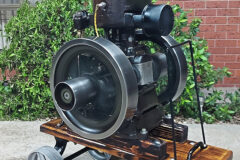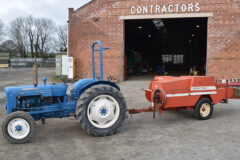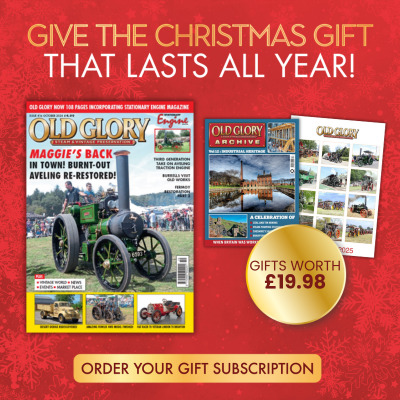Pre-war Morris/Morris-Commercial light vans
Posted by Chris Graham on 15th December 2023
Mike Neale takes a look at some of the best white metal and collectable models of pre-war Morris/Morris-Commercial light vans on the market.
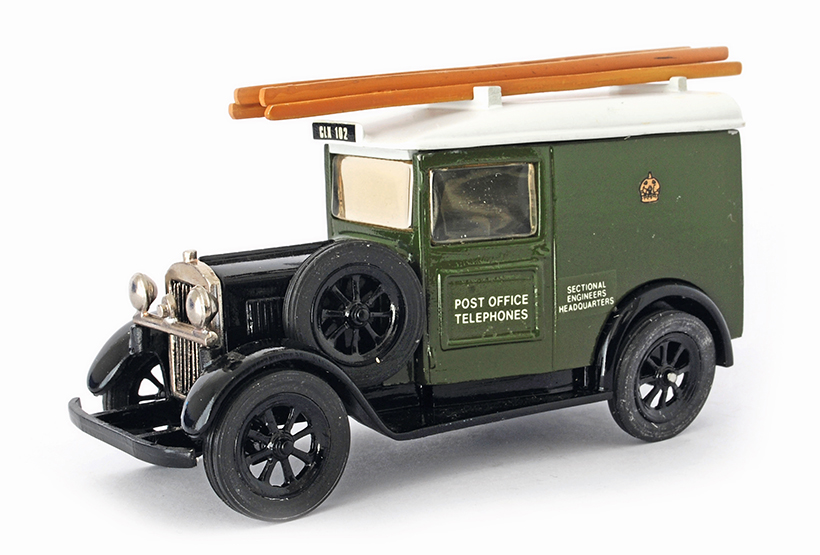
Morris/Morris-Commercial light vans: Post Office Telephones livery on Promod’s L2/8.
Recently I looked at Morris and the Morris-Commercial Light Vans produced mainly as mass-produced diecast toys and models. But other pre-war Morris and Morris-Commercial vans were modelled by specialist, low-volume, white metal manufacturers. First, though, a bit about the real vehicles.
In 1935, the Morris-Commercial L2/8 was introduced, specially made for the GPO and derived from the L2, with a shorter wheelbase of 8ft 6in to suit the GPO 70cu.ft van body. The L2/8 had hydraulic brakes instead of the L2’s rod-operated system, requiring different front hubs and brake drums, resulting in a wider front track. The L2 and L2/8 were replaced by the L3 and L3/8 in 1938.
The Morris-Commercial T-Type
The 1-tonner was launched in 1924, with a 13.9hp sidevalve engine and 10ft 2in wheelbase. In 1931 it was redesigned to become the T2 with a new, larger, chrome-plated radiator.
The 1934 season Morris 8/10cwt light vans, built from September 1933, had a restyled front end compared to the previous flatnose vans, with a new, slightly tapered radiator with a central vertical chrome divide and more swooping front wings with a headlamp mounting bar spanning between them.
The smaller Morris Minor 5cwt van was introduced in 1929, with an overhead camshaft engine, then a sidevalve engine from 1931. It had a rectangular radiator and wire wheels. The GPO bought a large number of the sidevalve vans from 1931, with bodywork fitted by various coachbuilders to standard GPO designs as a 35cu.ft Mail Van and Telephones Internal Utility. The Telephones External Utility had an additional sloping window above the windscreen for overhead cable inspection.
When Morris replaced the Minor van with the Morris 8 van in 1934, the GPO got them to continue building Minor chassis fitted with the new 918cc engine from the Morris 8, identifiable by a new tapered grille. Wire wheels were replaced by Easiclean wheels from 1937. Production of this hybrid van ended with the arrival of the Morris Z van, in 1940.
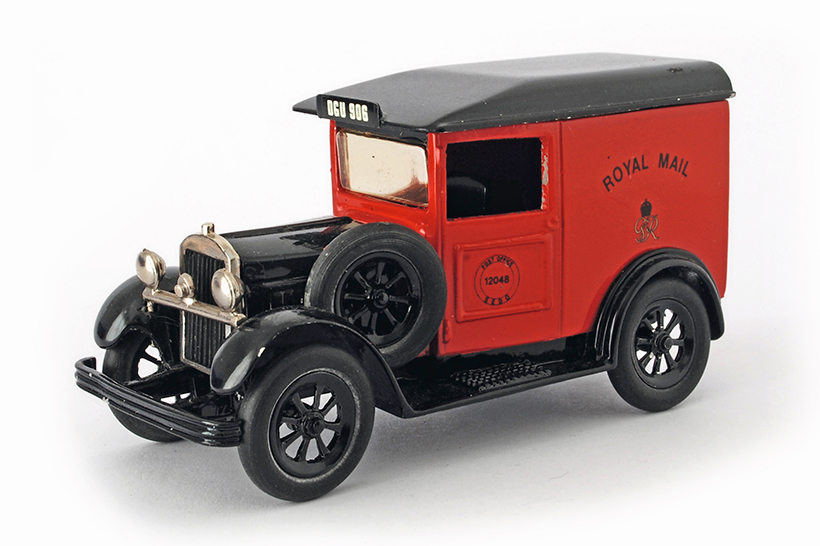
Promod’s 1/43 Morris-Commercial L2/8 70cu.ft. Mailvan.
Morris-Commercial L2/8 Models
Graham Ward of Promod Ltd. made a 1/43 scale white metal hand-built model branded as a Promod – Gearbox Model. With its short wheelbase, it most closely resembled a Morris Commercial L2/8 70 cu. ft mail van, and was a limited edition of 2,000 models. This was also released in blue Air Mail livery, with a sign on the roof and as a Post Office Telephones van in mid-bronze green with a roof-mounted ladder; each again as a run of 2,000 models. They came in a cardboard box with a clear plastic front which, unfortunately, didn’t offer much protection to the model inside, so the roof signs and ladders are often damaged or missing, and the front bumpers tend to get bent. So examine it carefully if you find one for sale.
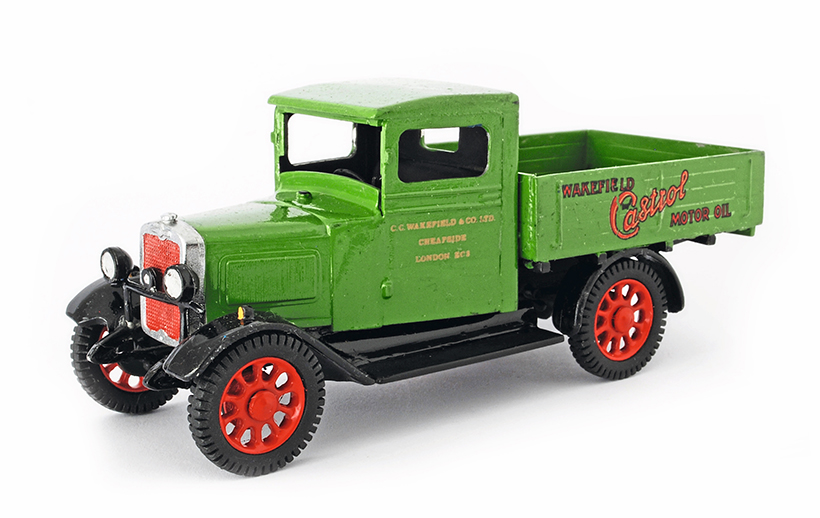
Metal Models’ 1/43 scale Morris-Commercial 1-ton pick-up in Castrol colours.
Morris-Commercial T2 models
Derek Barratt, along with friend and railway enthusiast Royston Carss, set up Metal Models in 1973, initially making railway vehicle kits, with the masters and castings produced by Bailoy Engineering. They produced a series of 1/43 scale white metal Morris-Commercial T2 1-ton kits in 1975, consisting of a low-roof van, high-roof van and pick-up; the latter with or without a tilt. They came with transfers for the purchaser to apply in the chosen livery. Around 800 were made in total, and they don’t tend to appear for sale very often. I’ve managed to get a pick-up in Castrol livery, and one as a Mann’s Coal truck. The latter has a coal merchant at the wheel, which is quite a nice touch, but I suspect this might have been added by whoever originally built the kit.
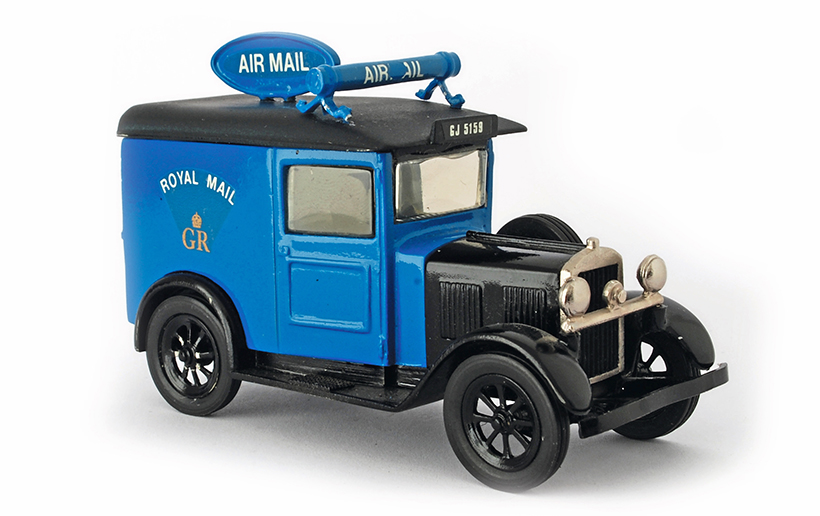
The Air Mail version of the Promod Morris-Commercial L2/8.
At around the same time, Bryan Garfield Jones set up Motorkits in 1974, also making white metal models in 1/43 scale, one of which was a Morris-Commercial open fire engine.
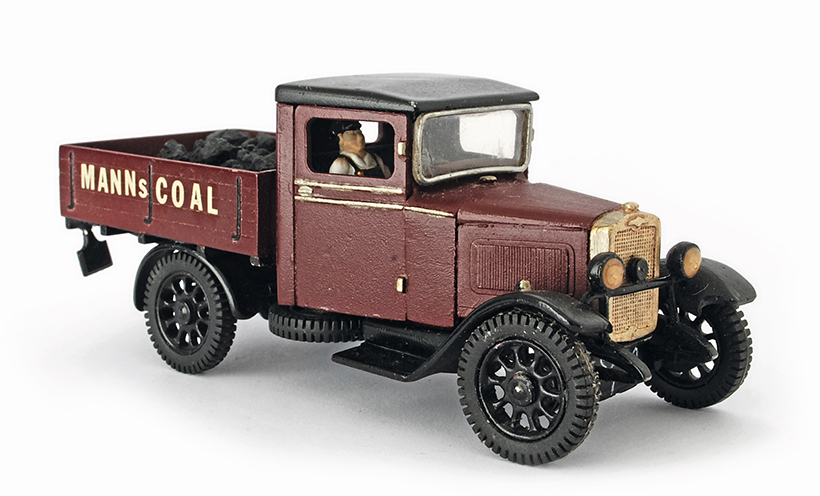
Coal delivery truck version of Metal Models 1-ton pick-up.
1934 Morris 8/10 cwt models
Dave Gilbert set up DG Models in 1971, making reproductions of pre-war Dinky Toy vans. He also made models of other vehicles that Dinky never made, in his DS (Dinky Style) range. One of these closely resembled the 1934 season Morris 8/10cwt van, albeit that the grille didn’t really taper and there was no headlamp mounting bar (these were omitted on the 1935 van, but the wings and body were also a different shape). I’ve seen these in Zube cough sweets livery and as an ambulance, but no doubt other liveries existed.
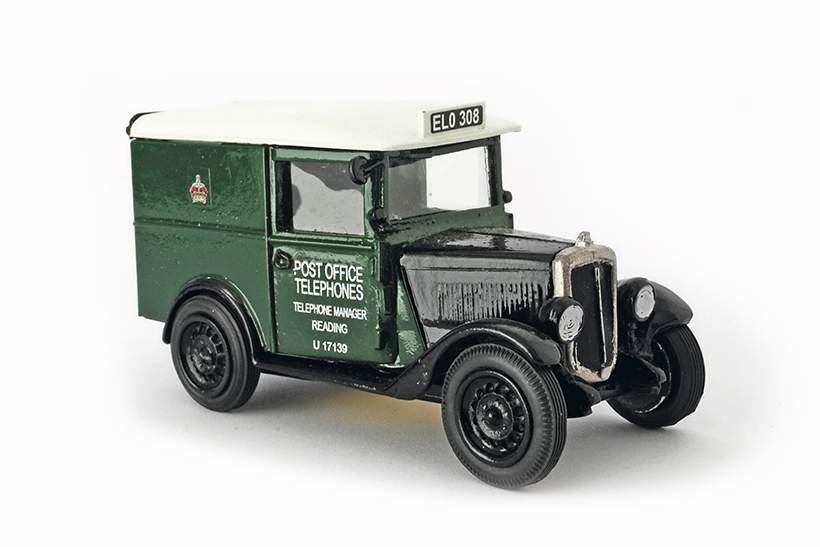
Roxley Models Morris Minor hybrid Van as a Post Office Telephones Internal Utility.
Morris Minor 5cwt models
Bill Barnes, of Tober Models in Peterborough, produced 1/48 scale white metal hand-built models of the original Morris Minor 5cwt van, with both body styles. The regular van was available as a Royal Mail van and a Telephones Internal Utility, while the Telephones External Utility had the sloping roof windows and a ladder on top.
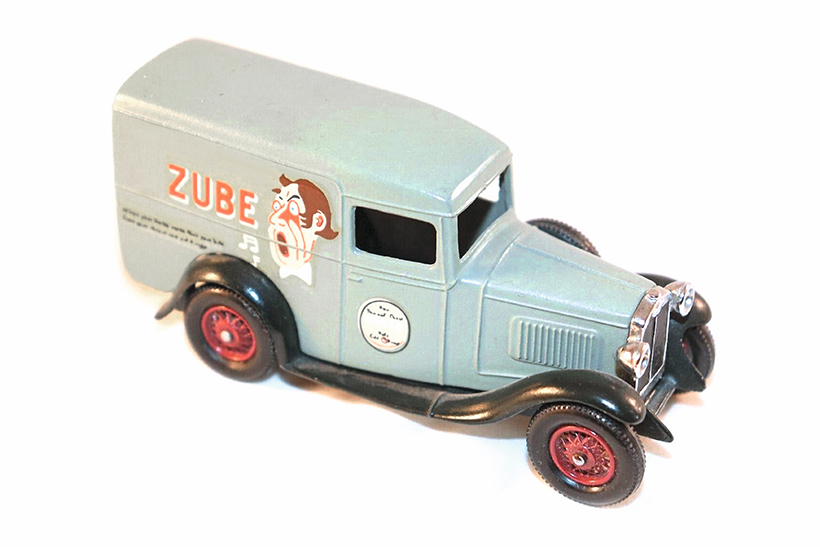
Dinky Style 1934 Morris 8/10cwt van by Dave Gilbert.
Jem Metal Miniatures of Finchley, London, made a white metal kit of a 1930 Morris Minor van in the fractionally larger 1/43 scale. Waterslide transfers were supplied with the kit, and some were sold built, with liveries including Pratts, Cooksey & Sons Wine Merchants and Borwick’s Baking Powder. Thanks to Devizes Diecast and to Vectis Auctions (vectis.co.uk) for the Jem models photographs.
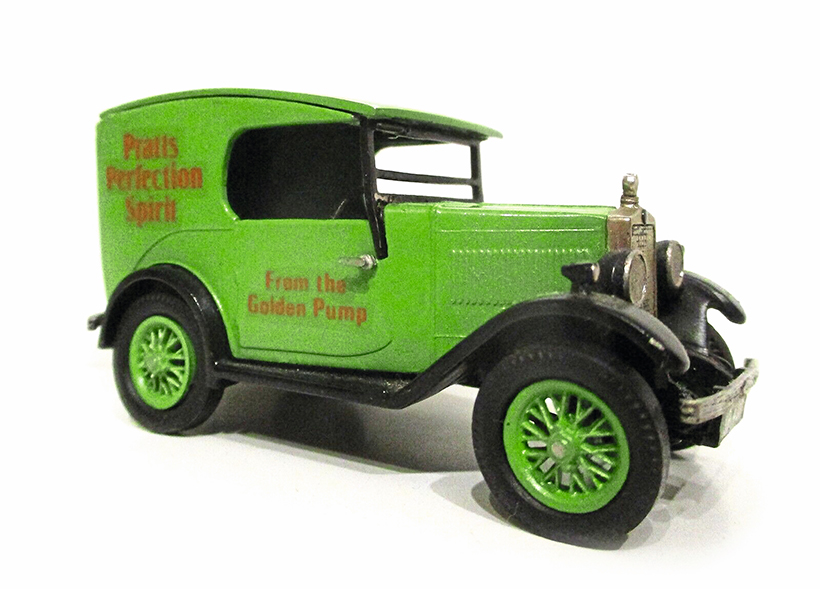
Jem Metal Miniatures 1/43 Morris Minor in Pratts livery. (Pic: Devizes Diecast)
Frank Rice-Oxley was one of the founders of the Post Office Vehicle Club in 1962 and, in 1986, he set up Roxley Models with his son in Great Bookham, Surrey, specialising in 1/48 scale white metal, hand-built GPO vehicles. They produced a model of the later Morris Minor 5cwt hybrid van with the tapered grille. This was available in Royal Mail livery and as a Post Office Telephones Internal Utility, plus a bronze green Post Office Radio Service van. Roxley also produced the Post Office Telephones External Utility version of the 5cwt hybrid van with its upper sloping windscreen and a roof-mounted ladder.
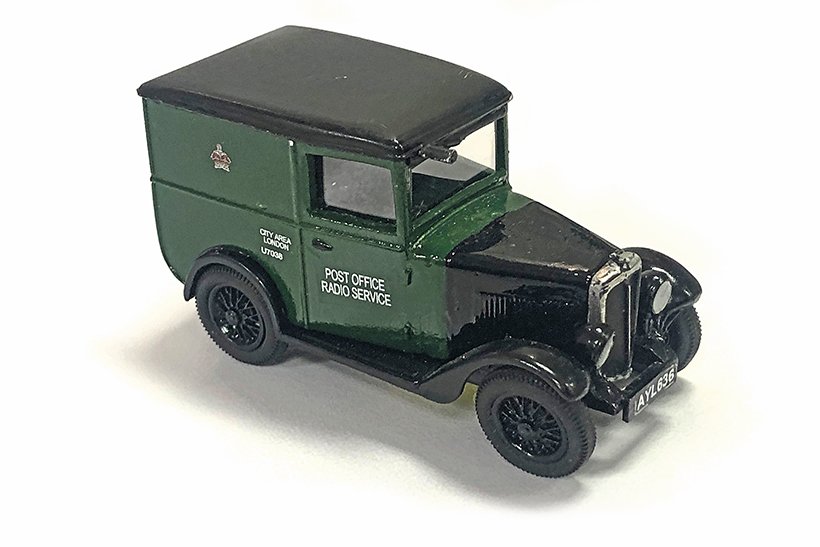
Post Office Radio Service version of Roxley’s Morris Minor hybrid van.
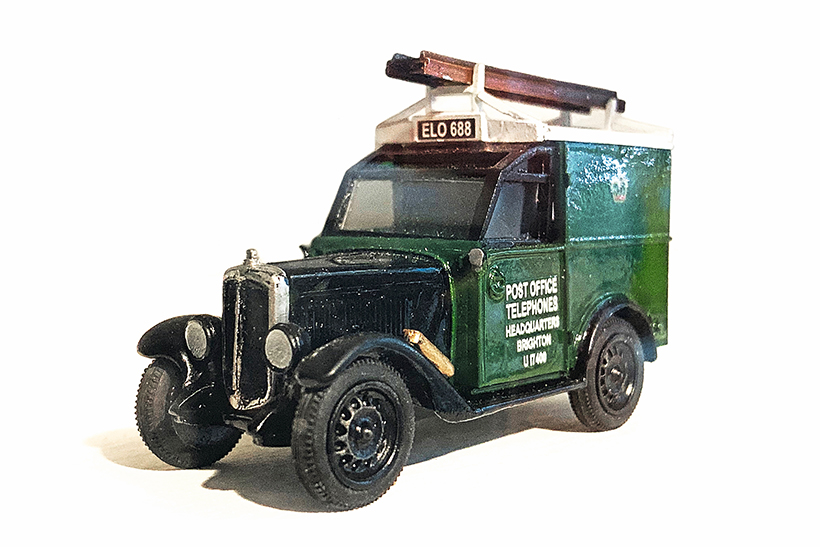
Post Office Radio Service version of Roxley’s Morris Minor hybrid van.
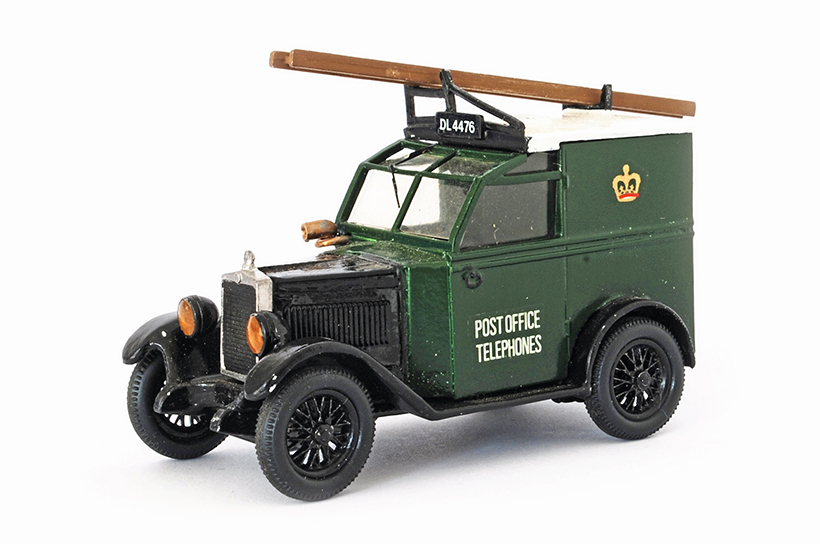
Tober Models’ External Utility version of the original Morris Minor van in 1/48 scale.
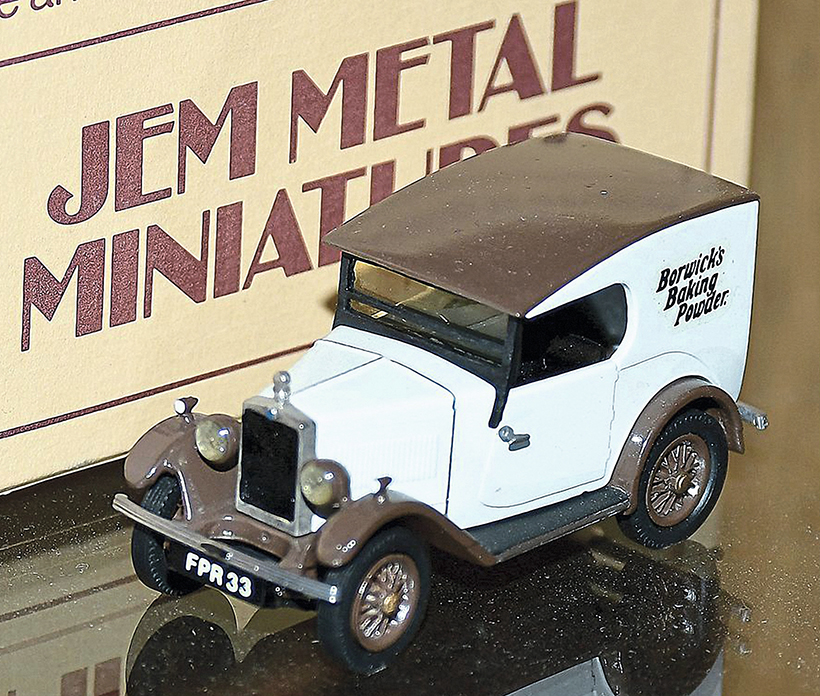
The Borwick’s Baking Powder version of Jem Metal Miniatures’ Minor van. (Pic: Vectis Auctions)
This feature comes from the latest issue of Classic & Vintage Commercials, and you can get a money-saving subscription to this magazine simply by clicking HERE



